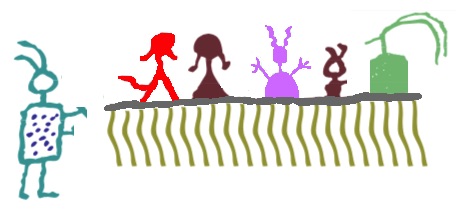The forum for candidates running for local city council or mayor, or county-level elected office.
The opening of the community farmer’s market.
The Spring musical by the community theater.
The rummage sale by the largest church in town.
The open house at the local mosque.
The Day of the Dead celebrations at the Hispanic cultural center.
The local Juneteeth celebration.
Your nonprofit MUST have representation at community events. Your executive director or a member of your board needs to be there, meeting people, shaking hands, listening to their program, showing your nonprofit organization is a part of the community.
I love the Internet, including social media. Yes, still. Any nonprofit that ignores its Internet presence, or doesn’t try to do something meaningful and collaborative online, is foolish and isn’t going to last. But the same is true for onsite, face-to-face community networking: you have to show that you care as much for other nonprofits as you want them to care for you. You have to look directly into the eyes of elected officials if you want your organization to matter to them.
What does this kind of in-person networking get you?
- More donors.
- More volunteers.
- More and more appropriate client referrals and larger audiences for your programs and messaging.
- More collaboration.
- More community support, including cross-party political support.
“But I don’t have time!” you whine.
No, the problem is you don’t MAKE the time. Of course, you can’t go to absolutely everything – but you must build a list of key events and decide at which ones someone from your organization needs to be present.
Your marketing director, the chair of marketing on your board, or a trusted volunteer needs to research upcoming community events EVERY MONTH. Get it on a calendar and let the Executive Director, board members, even the entire staff, have a look. Encourage those that could represent the organization to choose what they might be able to go to – some might already have plans to go and hadn’t thought about going as a representative of your organization.
Prep your staff and volunteers that go to events on behalf of your organization in how to present themselves as representatives:
Give them an opening statement, like, “Hi, I’m so-and-so, and I’m a board member of such-and-such organization. Great event!” It’s that simple. Who do they say this to? Anyone they think might have something to do with organizing the event.
Over time, this kind of engagement cultivates a familiarity with your organization. Your organization seems more approachable and collaborative. Someone might tell you about partnership opportunities, a great candidate for your board, even misinformation about your organization that is spreading. You may find out about a local funding opportunity you would not have otherwise. A candidate for office may decide the cause you address – affordable housing, the performing arts, domestic violence, recycling – is worth supporting as a policy or legislatively.
And don’t be surprised if your online followers increase and your online messaging starts to have a lot more reach as well.

If you have benefited from this blog, my other blogs, or other parts of my web site and would like to support the time that went into researching information, developing material, preparing articles, updating pages, etc. (I receive no funding for this work), here is how you can help.


